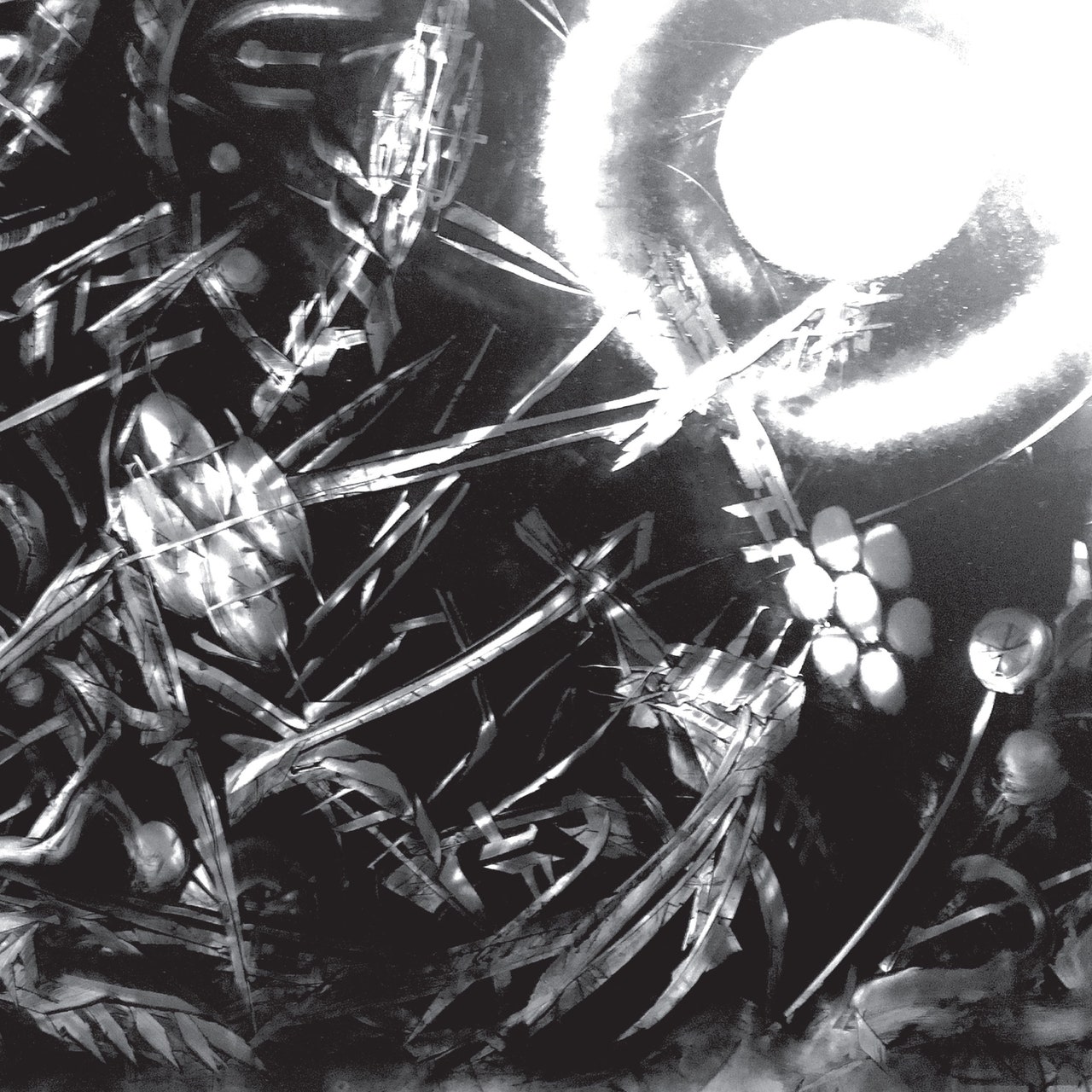After years spent as dubstep’s noir weird uncle, Kevin Martin is getting reacquainted with his original vocation: maker of head music for headbangers. His seventh album as the Bug, 2021’s Fire, was a welcome return to the corrosive industrial ragga of his ’00s output, after years of desolation trip-hop and Black-Ark-gone-Black-Lodge murkscapes. The Zonal project reconnected him with Godflesh pummeler Justin Broadrick for some scorched-Earth drones. A pair of crucial reissues of the duo’s aggro-illbient collaboration Techno Animal emerged courtesy of extreme metal label Relapse Records. The latest release from the ever-prolific funcrusher makes his last 15 years of dystopian dub and gray-toned “dream noise” sound like a Carnival cruise to Montego Bay.
Machine is an anthology of five digital EPs Martin constructed as “floor weapons” for his 10-bassbin Pressure parties at Berlin’s Gretchen club and other gigs. Martin’s first non-collaborative instrumental outing as the Bug, Machine is inspired by the oppressive volume of both reggae soundsystem clashes and Swans shows, a full-contact sound arsenal made to churn bowels, vibrate molecules, and push air. Martin remains a master of post-apocalyptic textures and all manner of swirling digital gunk, but while nuance is here in droves, it’s not exactly the draw. Like other uniquely extreme albums—Napalm Death’s Scum, Merzbow’s Pulse Demon, or the Cherry Point’s Night of the Bloody Tapes—it feels like the victory of some kind of arms race. Martin’s bass tones are preposterously low. His basslines are kaiju-sized, rubbery, detuned, screwed sounding. Opener “Annihilated (Force of Gravity)” is lurchy to a degree where it sounds like Korn’s bassist pinch-hitting for Flipper. Machine feels unsafe at any volume.
The 12-track version, available on streaming services or two LPs of splattery vinyl, is an ample distillation of the project’s mix of hypnosis and malevolence. The sluggy pace, the Jah Wobble-on-Codeine basslines, and the cavernous, almost physical echos make it “dub music” in the most general sense, but Martin’s palette more closely resembles clanging factories, smoking engines, foghorns, freight elevators, hissing steam, and scratchy Basic Channel records. “Shafted (Laws of Attraction/Repulsion)” starts with digital church bells—a modern retelling of the first Black Sabbath LP. “Sickness (Slowly Dying)” sounds like it’s been forged from vinyl static; “Vertical (Never See You Again)” feels like an Ampex reel being drawn and quartered; and “Departed (Left the Body Behind)” unnerves with some sort of distorted digital wail attempting to make contact. Machine exists somewhere between the flicker of lost memory and the adrenaline-fueled panic of impending doom: It crackles like hauntology, but electrifies like ghostbusting.
